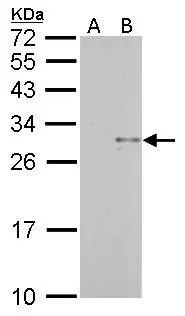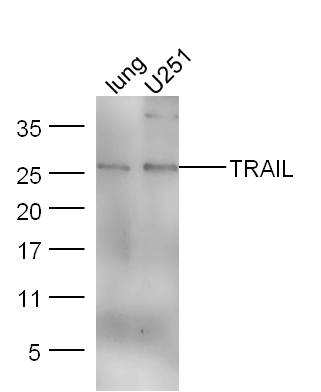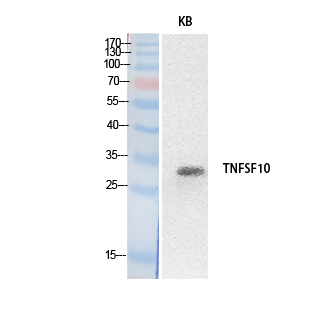anti-CD253 / TRAIL antibody [B-S23] (low endotoxin)
ARG23335
ApplicationsFunctional Assay, Flow Cytometry, ELISA
Product group Antibodies
ReactivityHuman
TargetTNFSF10
Overview
- SupplierArigo Biolaboratories
- Product Nameanti-CD253 / TRAIL antibody [B-S23] (low endotoxin)
- Delivery Days Customer23
- ApplicationsFunctional Assay, Flow Cytometry, ELISA
- CertificationResearch Use Only
- ClonalityMonoclonal
- Clone IDB-S23
- Concentration2.3 mg/ml
- ConjugateUnconjugated
- Gene ID8743
- Target nameTNFSF10
- Target descriptionTNF superfamily member 10
- Target synonymsAPO2L, Apo-2L, CD253, TANCR, TL2, TNLG6A, TRAIL, tumor necrosis factor ligand superfamily member 10, Apo-2 ligand, TNF-related apoptosis inducing ligand TRAIL, chemokine tumor necrosis factor ligand superfamily member 10, tumor necrosis factor (ligand) family, member 10, tumor necrosis factor (ligand) superfamily, member 10, tumor necrosis factor ligand 6A, tumor necrosis factor superfamily member 10
- HostMouse
- IsotypeIgG1
- Scientific DescriptionThe protein encoded by this gene is a cytokine that belongs to the tumor necrosis factor (TNF) ligand family. This protein preferentially induces apoptosis in transformed and tumor cells, but does not appear to kill normal cells although it is expressed at a significant level in most normal tissues. This protein binds to several members of TNF receptor superfamily including TNFRSF10A/TRAILR1, TNFRSF10B/TRAILR2, TNFRSF10C/TRAILR3, TNFRSF10D/TRAILR4, and possibly also to TNFRSF11B/OPG. The activity of this protein may be modulated by binding to the decoy receptors TNFRSF10C/TRAILR3, TNFRSF10D/TRAILR4, and TNFRSF11B/OPG that cannot induce apoptosis. The binding of this protein to its receptors has been shown to trigger the activation of MAPK8/JNK, caspase 8, and caspase 3. Alternatively spliced transcript variants encoding different isoforms have been found for this gene. [provided by RefSeq, Jul 2010]
- ReactivityHuman
- Storage Instruction-20°C
- UNSPSC12352203






